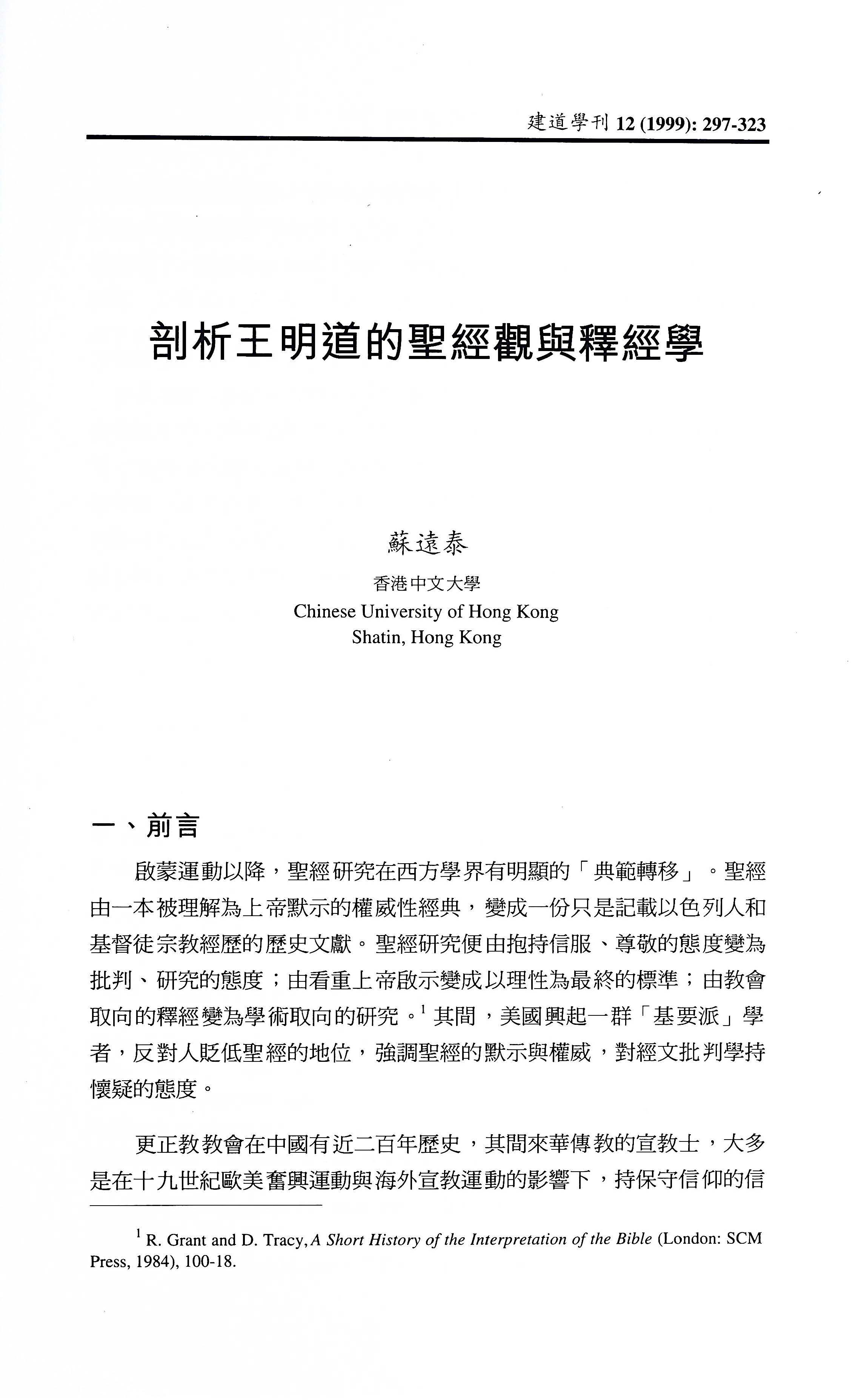剖析王明道聖經觀與釋經學 / 蘇遠泰
撮要
王明道先生是中國教會歷史中著名的傳道人,對聖經權威十分重視,一生的教導和牧養工作都按聖經教導而來。本文嘗試分析王氏的聖經觀和他的釋經學,並指出其釋經的實用性。文章最後反對把王氏說成是一個尋找作者原意的倡導者,更以詮釋學的解讀為王氏不重經文的歷史與文法、卻重實際生活應用的釋經進路辯護,確立這是一個「合法」的詮釋。
ABSTRACT
Wang Ming-dao was one of the outstanding church leaders in China. He gave great emphasis on the authority of Bible. And his teaching and pastoral ministry were based on the teachings of the Bible. This paper presents an analysis on Wang’s view of the Bible and his exegesis, with emphasis on his exegetical praxis. The writer objects against the idea that the aim of Wang’s exegesis was to merely to focus on the biblical authors’ original intention in their writings. In light of Gadamer’s theory of hermeneutics, the writer claims the “legitimacy” of Wang’s exegesis, though it is totally different from the historical-grammatical method.
In the present stage of Chinese modernization, there are three dilemmas: (1) the dilemma between economic reform and political reform; (2) the dilemma between the priority of social system reform and the efforts on improving individual quality of the people; and (3) the dilemma of the need and the adverse effects of modernization. The writer claims that Christian virtues (such as “love,” “humility”), its spirituality and its moral teachings would help China to deal with these dilemmas. In short, Christianity does have its positive role in the contemporary Chinese modernization process.
原載於《建道學刊》12期(1999年7月),頁297-323。
Latest Articles
新手牧者研究計劃(三):新手牧者的身心靈狀態 / 盧慧儀
2025 年 11 月 19 日
個體與關係:滕近輝思想中「深化」的靈性觀 / 倪步曉
2025 年 11 月 18 日
香港九龍塘基督教中華宣道會之起源和發展史/陳智衡
2025 年 10 月 20 日
Highlights
[電子書]困境與抉擇:「建道研究中心30週年誌慶」跨學科研討會論文集/廖炳堂、倪步曉主編
2025 年 1 月 2 日
從梧州到長洲:建道神學院125年的挑戰與恩典 / 陳智衡
2023 年 10 月 1 日
微小教會的見證/高銘謙
2023 年 6 月 1 日







